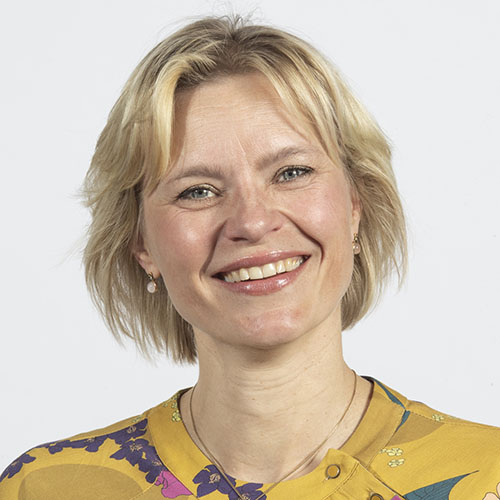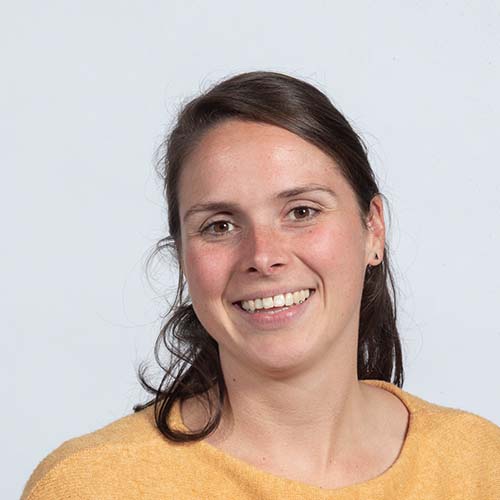About our research group/lab
Our research
Aim Research group Dietetics
Improving the efficacy and effectiveness of nutritional care is the main priority of the department of Dietetics. Our scientific objective is to investigate the optimal use of nutritional assessment both in patient care as in research and evaluate the effectiveness of specific dietary treatments and nutrients on different (complex) disease states, using the latest innovative technologies within our core facility of nutritional assessment. Within our research group, we study the effects of specific diets and nutrients on various diseases. Focus areas of our research are Metabolic Fasting (e.g. Ketogenic Diet, very low calorie diet), and Precision Nutrition (e.g. specific nutritional supplements like flavonoids/seaweed, and parenteral nutrition, blended diet).
Our research in clinical patients will lead to evidence-based dietetics and personalized dietary treatment, and both will have a beneficial effect on patient outcomes and the quality of care.
We initiate and participate in nutrition research both within our own department and with partners inside and outside the Erasmus MC.
Research lines
Our research group focuses on clinical research regarding nutritional assessment as diagnostic tool for evidence based dietary treatment and Metabolic Fasting and Precision Nutrition for the treatment of various metabolic diseases.
Within the nutritional assessment research line, research is done in various diseases and in the field of lifestyle, in both adults and children.

Nutritional Assessment
Nutritional status (NS) is “the condition of the body in those respects influenced by diet; levels of nutrients in the body and the ability of those levels to maintain normal metabolic integrity”. Nutritional assessment (NA) is the quantitative evaluation of nutritional status, and includes parameters of nutrient balance, body composition, functional status and biochemical status. For research purposes, NA data provide information on diagnostics and impact of (dietary) treatment on NS in addition to clinical outcome at group level, which can be used to develop reference and cut-off values of NS, and to develop evidence-based (dietary and medical) treatment for different patient groups.
Specific diets
Ketogenic diet therapy
In clinical studies we investigate the effect of the ketogenic dietary treatment on health related outcomes in children with pharmaco-resistant epilepsy or metabolic diseases. We investigate the effect of clinical care innovation (Keto-plaza: all keto- care at one place) and new treatment protocols according to the value based care strategy where patient/parents and medical team cooperate in defining the treatment outcomes.
Very low-calorie diet
In this research line, we investigate the (short and long-term) effect of a very low-calorie diet (VLCD) intervention program in patients with obesity related type 2 diabetes, on weight, diabetes regulation, extensive cardiovascular risk profile, and quality of life. The incorporation of e-health in the VLCD treatment is another research topic within this line.
Our projects
- Nutritional Status Database: assembly of structured and standardized Nutritional Assessment data for evaluation nutritional status and treatment effects on nutritional status
- IDPN project: The effect of parenteral nutrition supplementation during hemodialysis on nutritional status
- E-DIET project: the effect of an e-health application incorporated in a very low-calorie diet intervention program
- FLAVA project: The effect of dietary flavanols on renal vascular health in patients with type 2 diabetes and microalbuminuria
- POWER project: the health effects of a very low-calorie diet in patients with type 2 diabetes and obesity
- KetoPlaza project: application of a digital platform to customize ketogenic diet therapy
- Keto-Easy project: application of an e-tool for simplified application of ketogenic diet therapy
- Nutritional assessment in critically ill (COVID-19) patients
Key Publications
Scientific output in the last 2 years
1. Visser WJ, Egmond A, Timman R, Severs D, Hoorn EJ. Risk Factors for Muscle Loss in Hemodialysis Patients with High Comorbidity. Nutrients 2020;12.
2. Olieman J, Kastelijn W. Nutritional Feeding Strategies in Pediatric Intestinal Failure. Nutrients 2020;12.
3. Neelis E, Kouwenhoven S, Olieman J, et al. Body Composition Using Air Displacement Plethysmography in Children With Intestinal Failure Receiving Long-Term Home Parenteral Nutrition. JPEN J Parenter Enteral Nutr 2020;44:318-26.
4. Hoorn EJ, Bovee DM, Geerse DA, Visser WJ. Diet-Exercise-Induced Hypokalemic Metabolic Alkalosis. Am J Med 2020.
5. de Man FM, van Eerden RAG, van Doorn GM, et al. Effects of protein and calorie restriction on the metabolism and toxicity profile of irinotecan in cancer patients. Clin Pharmacol Ther 2020.
6. Coopmans EC, Berk KAC, El-Sayed N, Neggers S, van der Lely AJ. Eucaloric Very-Low-Carbohydrate Ketogenic Diet in Acromegaly Treatment. N Engl J Med 2020;382:2161-2.
7. Yahya R, Berk K, Verhoeven A, et al. Statin treatment increases lipoprotein(a) levels in subjects with low molecular weight apolipoprotein(a) phenotype. Atherosclerosis 2019.
8. van Oers HA, Haverman L, Olieman JF, et al. Health-related quality of life, anxiety, depression and distress of mothers and fathers of children on Home parenteral nutrition.Clin Nutr 2019;38:1905-12.
9. van der Louw EJ, Olieman JF, Catsman-Berrevoets CE, Vincent A. Author response to 'Problems associated with a highly artificial ketogenic diet: Letter to the Editor Re: van der Louw EJTM, Olieman JF, van den Bemt PMLA, et al. "Ketogenic diet treatment as adjuvant to standard treatment of glioblastoma multiforme: a feasibility and safety study"'. Ther Adv Med Oncol 2019;11:1758835919882584.
10. van der Louw E, Reddingius RE, Olieman JF, Neuteboom RF, Catsman-Berrevoets CE. Ketogenic diet treatment in recurrent diffuse intrinsic pontine glioma in children: A safety and feasibility study. Pediatr Blood Cancer 2019;66:e27561.
11. van der Louw E, Olieman JF, van den Bemt P, et al. Ketogenic diet treatment as adjuvant to standard treatment of glioblastoma multiforme: a feasibility and safety study. Ther Adv Med Oncol 2019;11:1758835919853958.
12. van der Louw E, Olieman J, Poley MJ, et al. Outpatient initiation of the ketogenic diet in children with pharmacoresistant epilepsy: An effectiveness, safety and economic perspective. Eur J Paediatr Neurol 2019.
13. van der Louw E, Aldaz V, Harvey J, et al. Optimal clinical management of children receiving ketogenic parenteral nutrition: a clinical practice guide. Dev Med Child Neurol 2019.
14. Neelis E, Kouwenhoven S, Olieman J, et al. Body Composition Using Air Displacement Plethysmography in Children With Intestinal Failure Receiving Long-Term Home Parenteral Nutrition. JPEN J Parenter Enteral Nutr 2019.
15. Rashid M, Verhoeven AJM, Mulder MT, Berk KAC, et al. Use of monomeric and oligomeric flavanols in the dietary management of patients with type 2 diabetes mellitus and microalbuminuria (FLAVA trial): study protocol for a randomized controlled trial. Trials 2018;19:379.
16. Neelis E, Rijnen N, Sluimer J, et al. Bone health of children with intestinal failure measured by dual energy X-ray absorptiometry and digital X-ray radiogrammetry. Clin Nutr 2018;37:687-94.
17. Neelis E, Olieman J, Rizopoulos D, et al. Growth, Body Composition, and Micronutrient Abnormalities During and After Weaning Off Home Parenteral Nutrition. J Pediatr Gastroenterol Nutr 2018;67:e95-e100.
18. Kossoff EH, Zupec-Kania BA, Auvin S, et al. Optimal clinical management of children receiving dietary therapies for epilepsy: Updated recommendations of the International Ketogenic Diet Study Group. Epilepsia Open 2018;3:175-92.
19. Berk KA, Buijks HIM, Verhoeven AJM, et al. Group cognitive behavioural therapy and weight regain after diet in type 2 diabetes: results from the randomised controlled POWER trial. Diabetologia 2018;61:790-9.
Collaborations
Erasmus MC collaborations
- Department of Internal Medicine (endocrinology, nephrology, vascular medicine, nursing)
- ‘Centrum voor Gezond Gewicht’ research group
- Department of Neurology, Division of Pediatric Neurology
- Department of Neurosurgery
- Department of Oncology
- Department of Pediatrics
- Department of Pediatric Surgery
- Center for lysosomal and metabolic diseases
- Division of Physiotherapy
- Department of Dermatology
- Department Rehabilitation medicine
- Department of Surgery (transplantation)
- Department of Psychiatry
- Department of Epidemiology, division nutrition and lifestyle
Collaborations outside of Erasmus MC
- University of Delaware, USA, Prof. Dr. Carrie Earthman
- Duke University, NC, USA, Jeroen Molinger
- University of Oslo, Norway, Prof. Kirsten Holven
- NAP: Nutritional Assessment Platform
- ERNICA (European Reference Network for rare Inherited and Congenital Anomalies)
- Diabetesfonds
- Nierstichting
- Stichting Darmfalen
- NESPEN
- ESPEN
Patient organizations:
- Matthews Friends UK, Mrs Emma Williams
- CCUVN/short bowel
- NVN (Nier Vereniging Nederland)
Funding & Grants
- ZonMW “Dietetics building the future”
- Stichting Achmea Gezondheidszorg Innovatieve leefstijlbehandeling voor mensen met diabetes type 2.
- Koers ’23 project – nutritional assessment dietetics
- NWO – take-off 1 haalbaarheidssubsidie – ‘U-diet project’ jan 2020
- Erasmus MC Mrace – Efficiency Research ‘Efficiency of a blended care version of an effective diabetes diet’ sept 2019-sept 2023
- SoFoKleS Sociaal Fonds Kennis Sector – ‘Gezond pres(en)teren: nudgingsacties in bedrijfsrestaurants Erasmus MC’
- Masquelliers’ OPC funding – ‘Use of monomeric and oligomeric flavanols in the dietary management of patients with type 2 diabetes and microalbuminuria (FLAVA trial)’ 2014-2019
- Diabetes Research Foundation - ‘Innovatiesubsidie voor het implementeren van een effectief VLCD voor mensen met diabetes’ (2013-30-1684) jan 2014 t/m dec 2015
- Erasmus MC Zorgonderzoek – ‘Group cognitive behavioural therapy and weight regain after diet in type 2 diabetes’ (Zorg-2008-8303) okt 2009 t/m okt 2015
Awards:
- European Institute of Innovation and Technology – Global Food Venture Award 2018
Our team
Joanne Olieman, RD, PhD: j.olieman@erasmusmc.nl
Kirsten Berk, RD, PhD: k.berk@erasmusmc.nl
Elles van der Louw, RD, PhD: e.vanderlouw@erasmusmc.nl
Wesley Visser, RD: w.j.visser@erasmusmc.nl
Karlijn Geurts, RD, Msc: k.geurts@erasmusmc.nl
Patty Lakenman, RD, Msc: p.lakenman@erasmusmc.nl
Principal Investigators
Project Leaders
-

dr. K.A.C. (Kirsten) Berk
Assistant Professor, Principle Investigator
-

J.F. (Joanne) Olieman, PhD
Research coordinator, registered pediatric dietician


